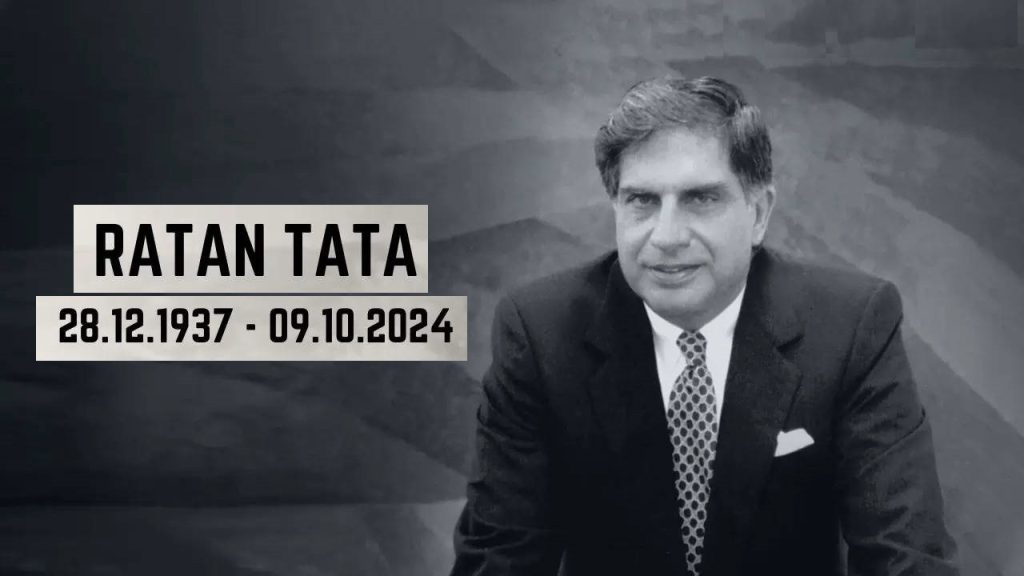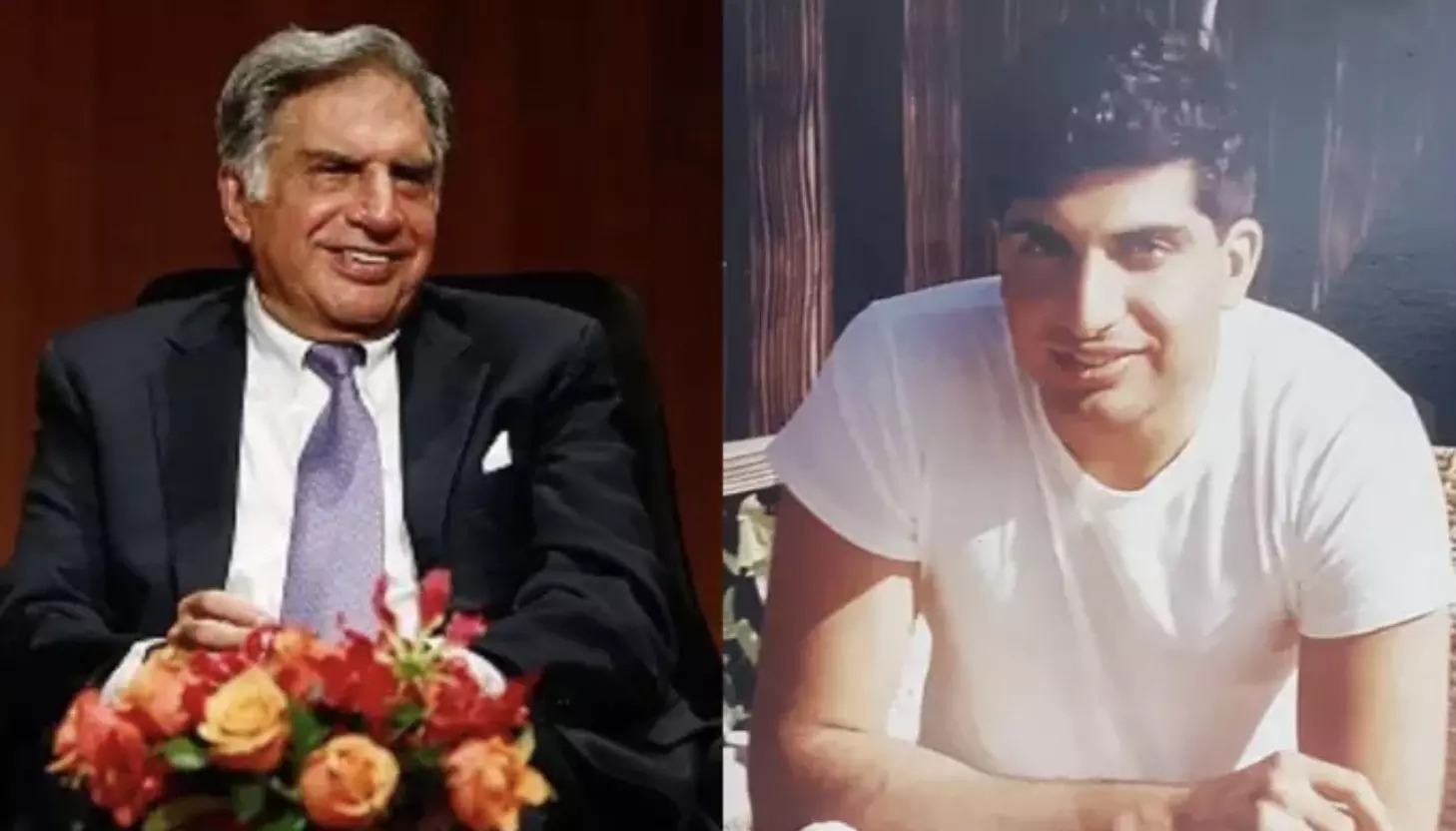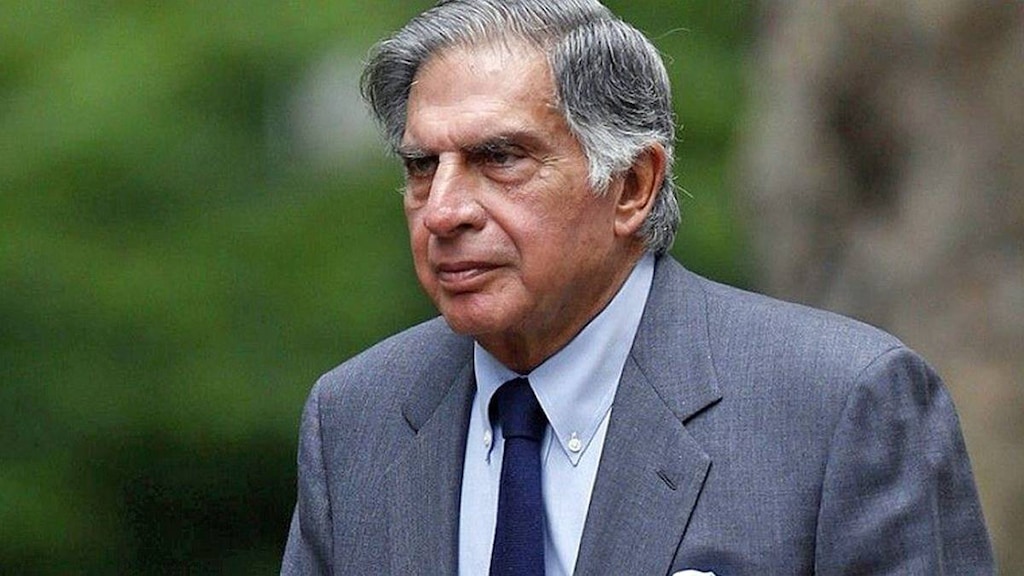The passing of Ratan Tata on October 9, 2024, marked the end of an era. More than just a business magnate, Ratan Tata was an icon of ethical leadership, humility, and an unyielding commitment to the welfare of India and its people. His legacy spans decades of transformative leadership, personal humility, and a heart dedicated to social causes. This tribute attempts to encapsulate the essence of his remarkable life and contributions to society.
Early Life and Family: The Making of a Leader
Ratan Naval Tata was born on December 28, 1937, into one of India’s most prominent families. The Tata family’s history was deeply entwined with India’s industrial and economic growth, starting from Jamsetji Tata, the founder of the Tata Group, whose vision helped lay the foundation for modern Indian industry. Despite being born into privilege, Ratan Tata’s early life was far from easy.
His parents, Naval Tata and Soonoo Commisariat, separated when he was just ten years old. This event had a profound effect on young Ratan, but it was his grandmother, Navajbai Tata, who stepped in and raised him. Navajbai was a strong influence in his life, instilling values of resilience, integrity, and humility, which would later define Ratan Tata’s leadership style. The challenges of his upbringing shaped him into a person who deeply understood both hardship and compassion.
Ratan Tata pursued his higher education at Cornell University, where he studied architecture and structural engineering. Later, he completed a management course at Harvard Business School, a step that solidified his entry into the corporate world. But despite his impressive education, his entry into the Tata Group was as humble as one could imagine.
Joining Tata Group: Humble Beginnings
In 1961, Ratan Tata joined Tata Steel, one of the flagship companies of the Tata Group. Unlike what many would expect for the heir to one of India’s largest conglomerates, his entry into the company was not in a cushy executive role. Instead, he worked on the shop floor alongside blue-collar workers, shoveling limestone and handling furnace duties.
This hands-on experience gave him an intimate understanding of the struggles of the working class and the importance of building a company with strong employee relations. It also reinforced his belief in the dignity of labor and set the tone for his leadership style: one that was grounded in humility, understanding, and empathy.
Rise to Leadership: Transforming Tata Group
Ratan Tata’s leadership of the Tata Group began in 1991, following the retirement of J.R.D. Tata. At the time, the Tata Group was a sprawling Indian enterprise with over 100 subsidiaries, many of which operated independently. Ratan Tata’s first task was to streamline these operations, which faced opposition from some of the company’s established leaders.
Despite the challenges, Ratan Tata pressed forward with a clear vision. He restructured the group, bringing all subsidiaries under a unified Tata Sons umbrella, ensuring greater accountability and synergy between the different businesses. This move was crucial in preparing the Tata Group for global expansion.
Under his leadership, the Tata Group expanded its footprint internationally, making some of the most significant acquisitions in Indian corporate history. These included the acquisition of Tetley Tea in 2000, which marked the group’s entry into the global beverage market, and the 2007 acquisition of Corus Steel, which made Tata Steel one of the largest steel producers in the world. Perhaps the most iconic of all was the acquisition of Jaguar Land Rover in 2008, a move that cemented Tata Motors’ position as a global automotive player.
Tata Nano: A Vision for India
While Ratan Tata is celebrated for his global business achievements, perhaps no project was more personal to him than the Tata Nano. Launched in 2008, the Tata Nano was a car designed to provide affordable mobility to India’s growing middle class. Priced at just Rs 1 lakh (around $2,000), it was the cheapest car in the world at the time.
Although the Nano didn’t achieve commercial success, the project reflected Ratan Tata’s deep commitment to improving the lives of ordinary Indians. He envisioned a car that would allow millions of Indians to switch from two-wheelers to safer, four-wheeled vehicles. The sentiment behind the Nano was noble and symbolized Tata’s people-first approach to business.
Anecdotes of Humility: A Man of Simple Living
Despite being one of the most powerful businessmen in the world, Ratan Tata was known for his humility and simple lifestyle. He famously lived in a modest apartment in Colaba, Mumbai, far from the lavish homes of his peers. He was often seen driving himself to work in a Tata car, without the entourage or fanfare that typically accompanies someone of his stature.
One of the most touching anecdotes about Ratan Tata’s humility came after the 2008 Mumbai terrorist attacks, where one of the targets was the iconic Taj Mahal Palace Hotel, owned by the Tata Group. Rather than focusing solely on the rebuilding of the hotel, Tata personally visited the families of every employee who was affected by the attacks. He ensured that all employees were compensated and that the families of those who lost their lives were cared for.
This personal attention to the well-being of his employees, even in times of crisis, set him apart as a leader. His compassion and kindness in the face of adversity left an indelible mark on the lives of those he touched.
Philanthropy: A Heart for Social Causes
Ratan Tata’s philanthropic endeavors were as impressive as his business achievements. A significant portion of Tata Sons’ dividends is directed towards charitable causes through the Tata Trusts, which Ratan Tata headed. The trusts support initiatives in areas such as education, healthcare, and rural development, significantly contributing to India’s social progress.
One of the most notable examples of his philanthropic vision was his investment in education. Through Tata Trusts, he supported several educational institutions, including Cornell University and the Indian Institute of Science. His contributions have helped thousands of underprivileged students gain access to quality education.
Additionally, Ratan Tata was a staunch advocate for healthcare. He spearheaded initiatives that improved access to healthcare in rural areas, and his philanthropy extended to disaster relief efforts, animal welfare, and community development.
Legacy of A true Leader Who Put India First
Ratan Tata’s legacy is not just that of a businessman but of a man who believed in creating value for society. Under his leadership, the Tata Group became synonymous with trust, integrity, and social responsibility. His insistence on ethical business practices set a high bar not only for the Tata Group but also for the Indian business community at large.
His global business acquisitions put Indian industry on the world map, but his commitment to philanthropy ensured that the benefits of Tata’s success were shared widely. The Tata Group today is not just an economic powerhouse but also a force for social good, thanks in large part to Ratan Tata’s leadership.
An immortal Legend who’d always be Bharat’s Ratan
As India mourns the passing of Ratan Tata, tributes have poured in from around the world. Leaders, industrialists, and ordinary citizens alike have expressed their admiration for a man whose life’s work was dedicated to making India and the world a better place. Delhi Chief Minister Atishi summarised the nation’s sentiment when she said, “He exemplified ethical leadership, always placing the welfare of the country and its people above all else. His kindness, humility, and passion for making a difference will be remembered forever”(Free Press Journal).
Ratan Tata’s impact will be felt for generations to come. His life was a testament to the power of visionary leadership, compassion, and unwavering integrity. He may have passed, but his legacy will continue to inspire future leaders to strive for greatness while remaining grounded in the values of humility and service.
Ratan Tata, the titan, may be gone, but his influence on Indian business, society, and philanthropy will resonate for decades. He truly was a legend who dedicated his life to the betterment of humanity.




